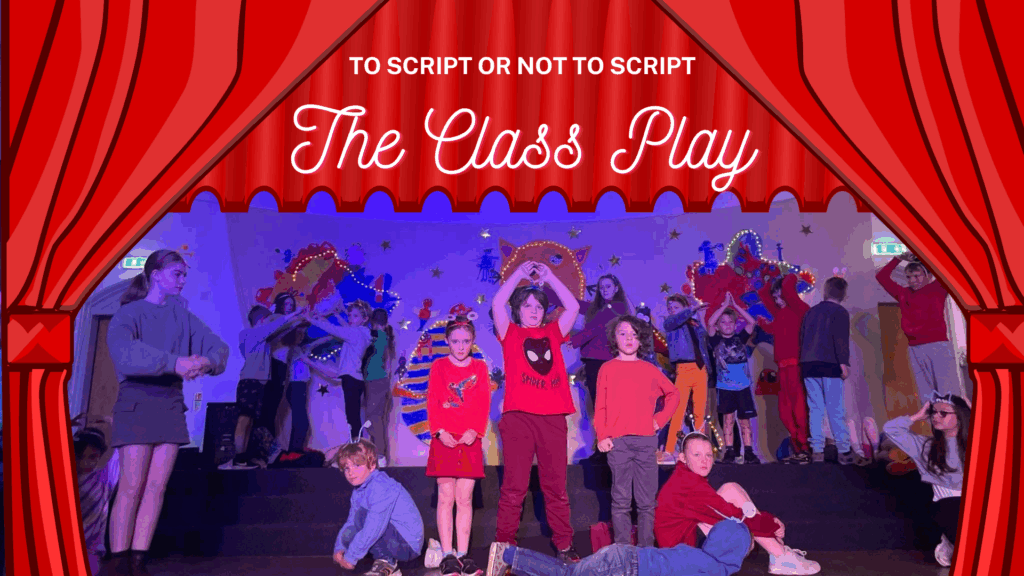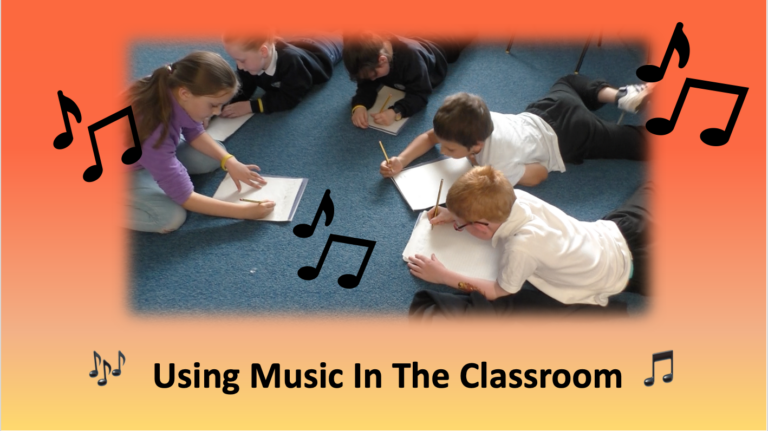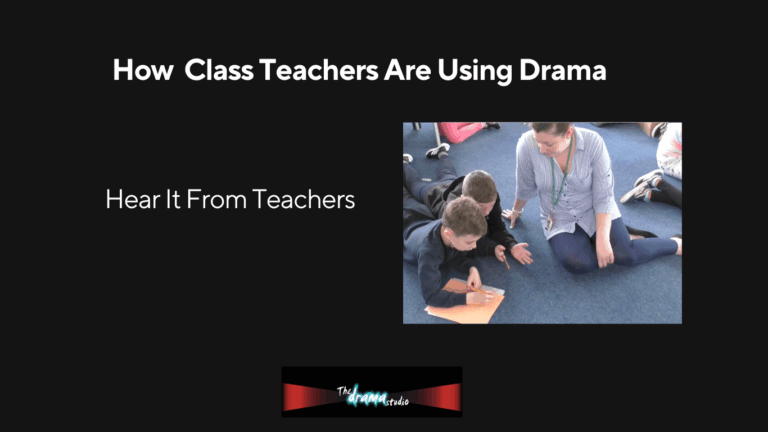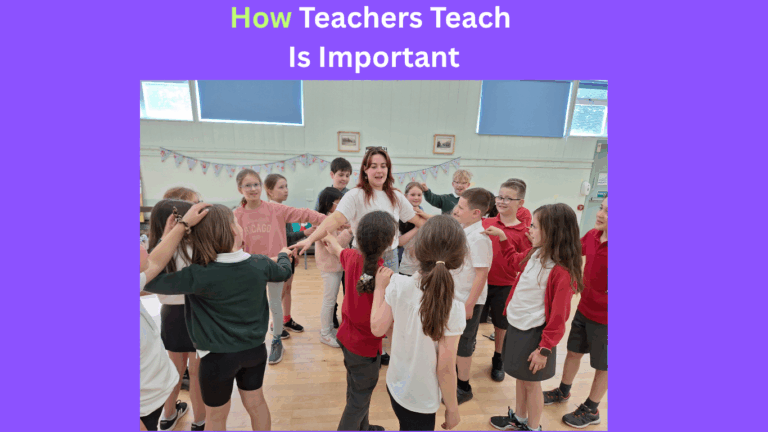The Class or School play can be a fantastic way of engaging and motivating learners.
If done well, it brings everyone together on task and is an incredibly powerful and exciting focus.
In my early days as a full time classroom teacher I did a class play practically every year and also created and organised whole school presentations performed for parents and friends.
Back then I started with using scripts, usually written by myself and kept to fairly well know stories or devised different scenes based around a theme.
As my interest in Drama generally increased and I was using it more and more as part of daily class learning, I began to realise that the traditional tight structure of scripting and assigning one role to one person was not the way to make the most of giving the students a deeper “play” experience.
There were glaring constraints of a purely scripted approach.
The students would worry about remembering lines and I found myself spending a lot of time teaching them how to avoid parroting line delivery.
Reading a script was a also problem for some students who would otherwise shine in regular drama lessons.
My classroom drama had shown me how creative they could be, using their own words, coming up with great presentation ideas through drama techniques to vary the scenes and not just using dialogue.
With around 33 children in my class, they had far more and better ideas than I alone had to create a story and develop it. I just had to tap into their creativity.
Things had to change and they did, starting with a re-jig of the teacher-student roles within the learning process.
My role would now be to initiate the start up stimulus for the play but my students would be the main creators. I would keep them focused throughout the process on what was workable and keep the timescale in mind. I would organise the play structure, ensure that we vary the elements – mime, movement, dialogue etc I would discuss with them enhancement add-ins such as music, simple costume, artwork, incorporating their suggestions and treating them as equal partners all the way. I would ensure inclusion and share roles fairly.
When my teaching role mindset changed in this way, a whole new approach showed itself to me.
It would see me eventually leave full-time teaching in day schools and set up The Drama Studio where this process would become THE highly successful basis for the work we have done over the years since 1993.
Now we also work in schools alongside class teachers helping them in their delivery of classwork but ALSO showing and supporting them in how to get the very most out of the class play, keeping the fun rolling throughout.
Takeaway from this experience – with young children you will almost certainly have a far smoother process WITHOUT trying to impose a tight script. Your students will remember and enjoy something that they have created and this will be evident to an audience and everyone involved.
The Christmas Play or Nativity
This can be something of a challenge for many teachers.
However get it right and your Christmas Presentation can be the perfect focus at this time when students, over-excited about the Festive period, become restless, a bit big for their boots and often downright behavioural.
If done well, The Christmas Show or Nativity can pull everyone together, channelling excitement and motivation.
It can be enormous fun.
We’ve been asked countless times to go into schools to rescue presentation rehearsals that are not going so well.
With only a couple of weeks to go until the big day and things are just not going well and everyone is getting anxious.
Over and over again we see the same mistakes being made with presentation pieces but fortunately these can be easily sorted out.
So how can you as teachers keep ahead of the time frame ensuring that the fun is still there and stress levels are not rising?
How can you be sure to deliver a great, talked-about performance?
We have literally done thousands of highly successful play presentations with children over the years and have developed an easy, inclusive template that ensures high quality and maintains the fun, feel good atmosphere for the students throughout.
Here we outline some Do and Don’t tips for you to consider.
The Do’s
DO be careful with scripted plays as outlined above. Often teachers think these will provide them with all the support they need. They have the words, often music etc The students are given parts and have to learn the script and this can put pressure on them and can stifle their own creativity unfortunately. The performance itself can come across as stilted, lacking in enthusiasm and just very mediocre despite hard efforts and good intentions of the teachers who have worked really hard to motivate everyone.
Although a script can provide structure and ideas, if you feel you must use one then we recommend using it in a VERY flexible way, allowing your class to input their own ideas and crucially their own words.
Our recommendation is that you do try to use an improvised approach instead of a script, based on the suggestions and ideas of the class for content, music and all the elements that go into your performance.
This way the class will feel they OWN the play. Despite what you might think, this is a far better way to engage your learners and to make the presentation more personal for them.
IT IS THIS ELEMENT THAT WILL TRANSFORM WHAT CAN BE A FRUSTRATING TASK FOR EVERYONE, INTO A FANTASTIC,UNFORGETTABLE EXPERIENCE!
DO incorporate Drama techniques within your presentation so that it is not dialogue -heavy. So use mime sections, tableau, movement, choral speaking, music, songs etc. This instantly adds structure to your play and variety for your audience.
DO consider doubling up parts to share out the key roles and make it easier to rehearse scenes side by side, saving you lots of time.
DO map out a timescale plan for your rehearsals and leave plenty of time to create a good impactful ending – nothing worse than a great presentation that fizzles at the end due to running out of time.
DO minimise the use of props. These are a distraction for young children and if you are using any introduce them to practise with well before your performance. We’ve seen potentially presentations completely spoiled by late introduction of props.
Children are very comfortable using mime and this works far better alongside their improvised scenes.
Costumes are fine but again if you’ve got any costume changes taking place you need to build in practising this.
The Don’ts
DON’T get into the position of nagging your students if you are feeling stressed, because they pick up on this and mimic your mood. Try to remain upbeat and encouraging.
DON’T use banning students from the Christmas Play as a punishment. Students have literally begged us to ask their class teacher if they can still do the play and we’ve never once seen anything positive come from using the participation in the play as a threat. If anything the behaviour gets worse.
The Play Structure
Keep your play structure simple.
Begin with a movement/ mime/tableau sequence that used most of the class involved and use captivating music to engage your audience.
Put together 3 or 4 scenes using improvised dialogue and mix -up with some drama techniques making sure that every child is involved in at least one of them.
Especially if you don’t have much time double up parts and rehearse scenes side by side.
We did Peter Pan with P5 and had 3 Peters, 3 Wendys and boys, 2 Hooks, 2 Tinkerbells.
End with a whole group scene like the starter scene – this could be another movement/ mime/tableau sequence or a song.
USE OUR DRAMA LITERACY OVER TO YOU TEACHING VIDEOS
We can take you through the process of building a great Christmas Play with your class using our interactive Over To You video lessons, taken straight from our Drama Literacy Programme.
You can use these just for fun in the class linking to Literacy or you can perform to another class or even parents and friends. A great idea is to buddy up with a younger or older class and have sharing sessions or a whole play show.
Feedback On Our Input
Below is feedback from teachers that we have worked with alongside in schools or who have used our resources which have encouraged them to take a basic script or structure off the page and make it personal to their own students – the end result is worth the leap of faith – promise!
Another big thank you from myself and my colleague, as well from all the children of our two P7 classes. The play and your input was great, Mrs MacTavish ‘s Waxworks play was thoroughly enjoyed by the school and the parents. Crucially, the children performing were involved at all stages. Encouraging their contributions throughout meant the children’s creativity and confidence grew and their excitement and engagement was ensured. The whole process was an inspiring and happy experience for all. The very professional support and guidance we received was first class. Thanks again Julie! K. Watson, Teacher, Hermitage Park PS
Wow! We’ve been having rehearsals over the last few days. Even during the Christmas holidays, the children were practising with their scene partners and all they want to do is act. Some have even created animations based on the Glencoe massacre. They certainly have caught the drama bug thanks to you. Colin Hunter, Teacher, Bellsquarry PS
Your input was very relaxed, comfortable and non-pressurised which made it really engaging for all pupils – especially those who struggle with confidence.Your method of teaching made each pupil’s part easy to remember without using a script and the pupils were able to add their own take to their characters! The children thoroughly enjoyed working with you! Thanks. Claire Little, Teacher, Hermitage Park PS
“I enjoyed adding in the costumes, it really brought the characters to life”
” I had so much fun and was proud that I remember all my lines”
“I liked that we got to add jokes and our own lines to it”
“I liked choosing the songs that would go with our performance”
“I liked that we were in charge of it all”
“I liked making props and designing the programmes for the show”
“I felt so confident” Jade Telfer’s students
“We enjoyed all the different costumes and the scene changes were amazing. The humour and thought that went into the script was very good”
“The children were fabulous. How did you get them to learn so much?”
“Absolutely brilliant! To think that P3/4 pupils could do that with that level of confidence and enthusiasm is tremendous.”
“I loved how everyone was included. The costume changes and prop management was fab too!”
“The singing and dancing was fantastic. It was a great length – not too short and not too long.” Parents From St Joseph’s




